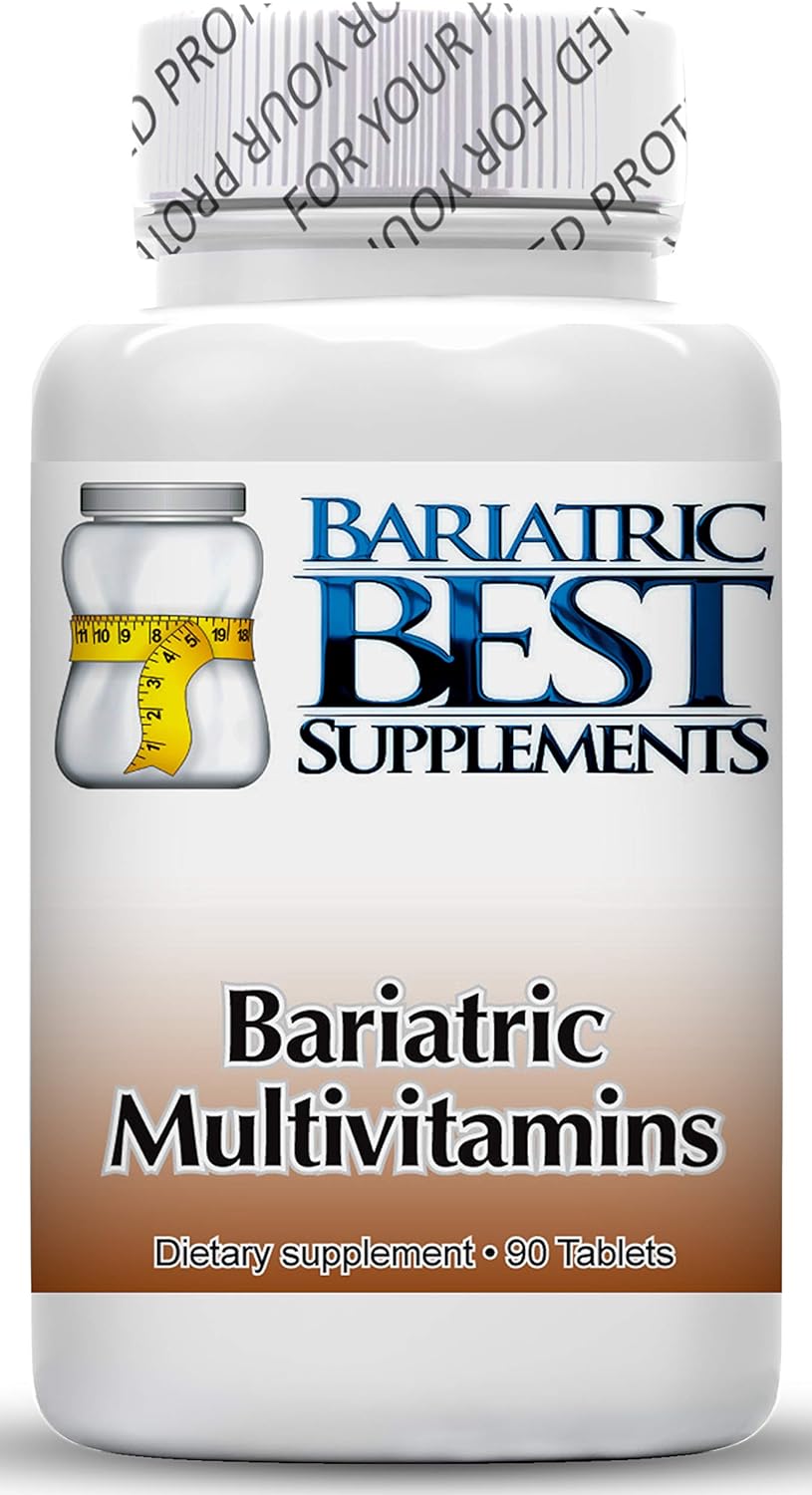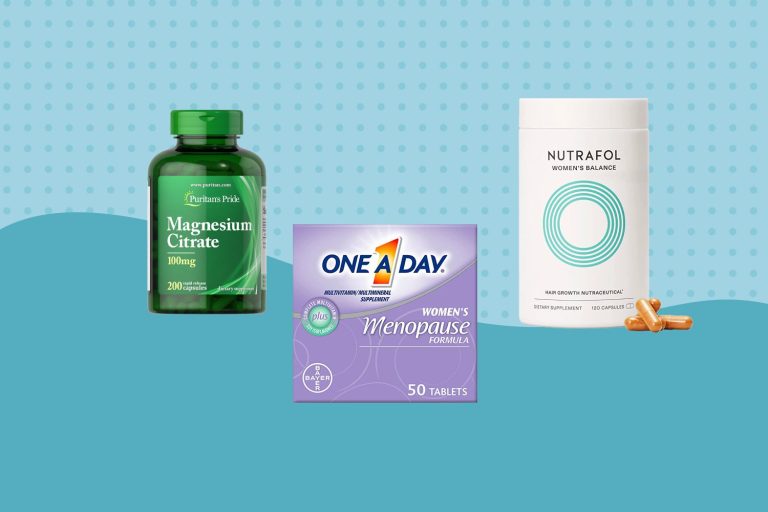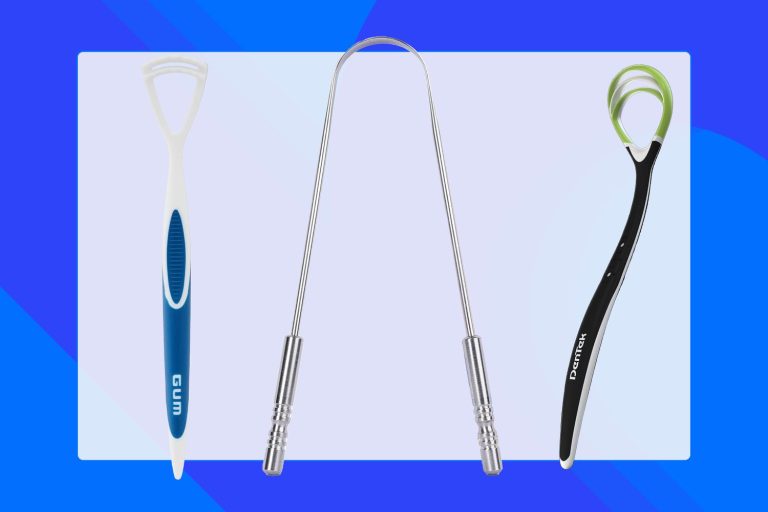9 Best Bariatric Vitamins: Essential Nutrients for Post-Surgery Recovery
Embarking on a bariatric journey is a life-changing decision that demands careful attention to your nutritional needs. Post-surgery, your body requires specific vitamins to ensure optimal health and prevent deficiencies. Navigating the world of supplements can be overwhelming, but choosing the right ones is essential for your well-being.
In this guide, you’ll discover the 9 best bariatric vitamins that cater to your unique needs. These vitamins are specially formulated to support your body’s new nutritional demands, helping you achieve your health goals with confidence. Let’s dive in and find the perfect supplements for your bariatric journey.
1. Multivitamin: The Foundation of Post-Bariatric Health
Starting your bariatric journey means prioritizing your nutritional intake. A quality multivitamin is crucial in maintaining your health post-surgery.
Recommended Brands and Forms
Choosing the right multivitamin is essential. Brands like Bariatric Advantage, Celebrate Vitamins, and ProCare Health specialize in post-bariatric formulations. Opt for chewable or liquid forms, as they’re easier to absorb after surgery. Bariatric-specific brands ensure you’re getting the appropriate nutrients in the right dosages.
Key Nutrients to Look For
Ensuring your multivitamin contains essential nutrients is vital. Look for vitamins A, D, E, and K, which are often deficient post-surgery. Important minerals include calcium, iron, and zinc. Choose a product with at least 100% of the daily value for these vitamins and minerals. High-quality multivitamins will support your overall health, prevent deficiencies, and aid in recovery.
2. Vitamin B12: Essential for Energy and Nerve Health
Importance of B12 in Bariatric Recovery
Vitamin B12 is crucial for maintaining your energy levels and supporting nerve function after bariatric surgery. Deficiency can lead to fatigue, weakness, and neurological issues. Due to changes in your digestive system post-surgery, B12 absorption becomes less efficient, making supplementation essential.
Optimal Forms and Dosages
Choose sublingual tablets, B12 injections, or nasal sprays to ensure effective absorption. Sublingual tablets dissolve under your tongue, bypassing the need for digestive absorption. Injections provide a direct boost to your bloodstream, ideal for severe deficiencies. A commonly recommended dosage is 500-1000 mcg daily, but always consult your healthcare provider for personalized guidance.
3. Iron: Critical for Blood Health
Iron is crucial following bariatric surgery due to its role in transporting oxygen through the blood. Adequate levels can prevent fatigue and anemia.
Risks of Iron Deficiency Post-Surgery
Iron deficiency is common after bariatric surgery. Procedures like gastric bypass reduce stomach acid, impairing iron absorption. Deficiency symptoms include fatigue, dizziness, and shortness of breath. Women, especially those of childbearing age, are at a higher risk. Regular blood tests are essential to monitor iron levels and prevent complications.
Top Iron Supplements for Bariatric Patients
Selecting the right iron supplement is key. Chewable or liquid forms are recommended for better absorption. Brands like Bariatric Advantage offer iron in forms designed for post-surgery needs. Celebrate Vitamins provides a chewable iron with vitamin C to enhance absorption. Fusion Lifestyle also has bariatric-specific iron supplements. Always discuss with your healthcare provider before starting a new supplement to ensure it meets your specific needs and dosages.
4. Calcium Citrate: Supporting Bone Health
Taking care of your bones is crucial after bariatric surgery. Calcium citrate is an excellent option for maintaining bone health.
Why Calcium Citrate is Preferable
Calcium citrate doesn’t require stomach acid for absorption, making it ideal post-surgery when stomach acid levels are reduced. It’s absorbed more efficiently compared to calcium carbonate. This means you can take it with or without food, offering more flexibility. Also, it’s less likely to cause digestive issues like gas or constipation, which is common with other calcium forms.
Recommended Daily Intake
The American Society for Metabolic and Bariatric Surgery (ASMBS) recommends 1,200 to 1,500 mg of calcium citrate daily for post-surgery patients. Split your doses throughout the day to maximize absorption. For instance, try taking 500-600 mg twice or three times a day. Always consult your healthcare provider to tailor your intake to your specific needs.
5. Vitamin D: The Sunshine Vitamin
Vitamin D’s role in your post-surgery life is vital for maintaining overall health and supporting your body’s recovery.
Synergy with Calcium Absorption
Vitamin D enhances calcium absorption, which is crucial for bone health, especially after bariatric surgery. Studies show that without enough Vitamin D, your body can’t absorb calcium efficiently, leading to potential deficiencies. Pairing your Vitamin D supplement with calcium maximizes benefits. For example, taking both together in a morning multivitamin or separate but coordinated doses ensures you’re supporting your skeletal structure effectively.
Dosage and Sources
Optimizing your Vitamin D intake involves knowing the right dosage and sources. Post-bariatric surgery, you may need higher doses due to altered absorption rates. The recommended daily allowance (RDA) for adults generally ranges from 600 to 800 IU, but bariatric patients often require 3,000 to 5,000 IU daily. You should get your levels checked regularly through blood tests to tailor the dosage to your needs.
Natural sources like sunlight, fortified foods, and fatty fish can help, but supplements are usually necessary post-surgery. Vitamin D3 (cholecalciferol) is preferred over D2 (ergocalciferol) for better absorption. Consult with your healthcare provider to determine the best form and dosage of Vitamin D for your specific situation.
6. Vitamin C: Boosting Immunity and Healing
Vitamin C plays a vital role in your bariatric journey, aiding in immunity and healing processes.
Benefits for Skin Health and Scar Tissue
Enhances collagen production, promoting wound healing and reducing scar formation. Vitamin C’s antioxidant properties protect your skin from oxidative stress, ensuring a smoother recovery. Several studies indicate its essential role in skin repair and regeneration.
Ideal Sources and Supplements
Include citrus fruits, berries, and leafy greens in your diet to intake natural vitamin C. For supplementation, chewable or liquid vitamin C is preferred post-surgery due to better absorption. Consult your healthcare provider to determine the appropriate dosage for your specific needs.
7. Probiotics: Enhancing Gut Health
Probiotics are essential for maintaining a healthy digestive system, especially after bariatric surgery. They play a vital role in ensuring that your gastrointestinal tract functions smoothly.
Role in Digestive Efficiency and Health
Probiotics help enhance digestive efficiency by balancing the gut microbiome. They aid in breaking down food more effectively, which is crucial when your stomach size is reduced. Probiotics also help absorb nutrients better, ensuring you get the most out of your dietary intake. Moreover, they can alleviate common post-surgery gastrointestinal issues like constipation and diarrhea by maintaining good bacteria levels.
Recommended Strains and Products
Certain strains of probiotics are particularly beneficial for gut health. Lactobacillus acidophilus and Bifidobacterium bifidum are two strains that support digestive efficiency and boost immunity. You might find these strains in products such as Culturelle Digestive Health Capsules or Renew Life Ultimate Flora Probiotic. Always check for products with a high CFU (colony-forming unit) count to ensure you’re getting an effective dose. It’s also wise to consult your healthcare provider to recommend the best probiotic supplements tailored to your needs post-surgery.
8. Omega-3 Fatty Acids: Essential for Heart Health
Essential to overall wellness, Omega-3 fatty acids support heart health and reduce inflammation, particularly after bariatric surgery.
Importance in Reducing Inflammation
Reducing inflammation is crucial after bariatric surgery. Omega-3 fatty acids help lower the risk of chronic diseases and reduce inflammation in your body. They play a key role in minimizing inflammation-related complications, accelerating your recovery. Studies show that Omega-3 consumption can significantly decrease markers of inflammation like C-reactive protein (CRP). Incorporating these fatty acids into your diet promotes joint health and aids tissue repair, crucial for your post-surgery healing process.
Best Sources for Bariatric Patients
Finding the best sources of Omega-3 is vital for bariatric patients, given their unique dietary restrictions. Fatty fish like salmon, mackerel, and sardines top the list of Omega-3-rich foods. If you’re not a fan of fish, consider supplements like fish oil or flaxseed oil capsules, which are easy to incorporate into your daily routine. Always opt for products that list Omega-3 as one of the primary ingredients. Additionally, chia seeds and walnuts offer plant-based Omega-3s for a balanced diet. Consult your healthcare provider to determine the appropriate dosage to meet your specific needs post-surgery.
9. Protein Powders: Supplementing Protein Intake
Protein powders can be essential in helping you meet your increased protein needs after bariatric surgery. They offer a convenient way to ensure you’re getting enough protein to support overall health and recovery.
Importance of Protein in a Bariatric Diet
Ensuring adequate protein intake is critical for your body to heal and maintain muscle mass after surgery. Protein helps repair tissues, supports your immune system, and keeps you feeling full longer, which can aid in weight management. According to the American Society for Metabolic and Bariatric Surgery (ASMBS), you should aim for 60-80 grams of protein daily post-surgery.
Choosing the Right Protein Powder
Selecting the right protein powder involves considering taste, digestion, and nutritional content. Go for powders with at least 20 grams of protein per serving and minimal sugar. Whey protein isolate is a popular choice because it’s highly digestible and complete with all essential amino acids. If you’re lactose intolerant or vegan, plant-based protein powders like pea or soy can be effective alternatives. Always read labels and consult your dietitian to find a product that fits your dietary needs and preferences.
Conclusion
Navigating your post-bariatric surgery nutritional needs is crucial for a successful recovery and long-term health. Prioritizing key vitamins and minerals like A, D, E, K, calcium, iron, and zinc ensures you address potential deficiencies. Incorporating protein powders into your diet helps meet your increased protein requirements, supporting tissue repair, immune function, and weight management.
Remember to choose protein powders with at least 20 grams of protein per serving and consider your taste preferences and digestion. Options like whey protein isolate, pea, or soy-based powders can cater to various dietary needs. By focusing on these essential nutrients, you’re setting yourself up for a healthier, more balanced journey post-surgery.






